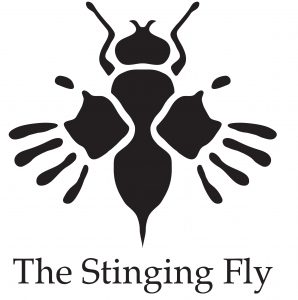
08 September, 2025
Agents and Publisher’s Tips & Tricks for Getting Your Work Published
With just days left until the deadline for entries to the International Debut Novel Competition, we’re encouraging aspiring authors not to miss this life-changing opportunity to get their work noticed by some of the leading figures in publishing.
The International Debut Novel Competition is unique in offering 12 winners the chance to pitch their first novel directly to influential publishers and literary agents. This year’s panel includes:
• Paul Feldstein, Literary Agent, The Feldstein Agency.
• Geraldine Nichols, Literary Agent, The Book Bureau.
• Patricia Deevy, Deputy Publisher, Penguin Random House Ireland.
• Ivan Mulcahy, Literary Agent, Mulcahy Sweeney Literary Agency.
• Sean Farrell, Lilliput Press, Submissions Editor.
• Brian Langan, Literary Agent, Storyline Literary Agency.
• Faith O’Grady, Literary Agent, Lisa Richards Agency.
• Gráinne Fox, Literary Agent, United Talent Agency.
• Nicola Barr, Literary Agent, Rye Literary.
To help unpublished writers make their mark, the panel has shared their top Hints & Tips for catching an agent or publisher’s eye:
1. Only Submit Your Best Work
Don’t send out a “nearly there” draft. Publishers and agents expect a manuscript that is as close to finished as you can possibly make it. Edit ruthlessly, cut what doesn’t serve the story, and consider professional feedback or a trusted beta reader.
2. Do Your Research
Target the right publishers and agents for your book. Study their catalogues, see what genres they champion, and note their submission guidelines. Sending a fantasy novel to a publisher that only takes crime fiction is a wasted effort.
3. Perfect Your Pitch
Your cover letter and synopsis are your shop window. Keep them professional, concise, and compelling. Highlight what makes your book unique, and why you are the right person to tell this story.
4. Network and Make Connections
Attend literary festivals, workshops, or competitions. Meeting industry professionals can open doors that cold submissions sometimes cannot.
5. Develop Resilience
Rejection is part of the process. Even the most successful authors faced many rejections before being published. Learn from feedback, keep submitting, and don’t give up.
6. Keep Writing
Don’t pin all your hopes on one manuscript. Publishers value writers who are in it for the long run. While you wait for responses, start the next project.
Ivan Mulcahy, Mulcahy Sweeney Associates, advises: ‘I say to writers that there’s nothing wrong with showing some personality. Don’t write your covering letter like you’re writing to a lawyer. The best letters I get immediately help me get a little sense of the person, that they are self-assured and able to be even ironic in their style.’
The closing date for entries is fast approaching; we urge writers to act quickly to seize this extraordinary chance. For many, the Competition has been the first step on the journey to publication — and this year it could be yours.
For more advice on preparing your entry, read former winner Lauren Mackenzie’s guide to writing your synopsis, and our rundown on crafting your writer’s CV here.
Submissions close at 11.59 pm GMT on Sunday, 14 September 2025. Find out more about how to enter here.



















